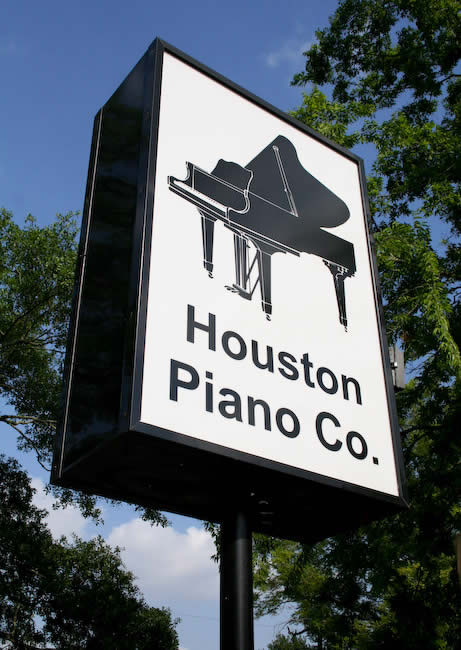Store Hours: Mon – Sat 10AM-6PM • Sunday 1PM-5PM
1600 W. 13th St • Houston, TX 77008
Houston’s Only Side-By-Side Comparison of Most Piano Brands.
The Only Piano Store Not Beholden to a 'Single' Brand.
The Best Piano is the Piano that Best Suits Your Needs.
Make Houston Piano Company your last stop!







Look at our beautiful new pianos in stock,
ready to be delivered today!
Our pre-owned pianos are gently used,
in perfect condition to enjoy for many years to come!
in perfect condition to enjoy for many years to come!
Want to try before you buy? Looking for
a piano for your next event? Take a look!
4.5/5
"Awesome atmosphere, knowledgeable
employees, and the dogs rock!"
S. Roth.
Facebook Reviewer
"My two boys love the piano camp.
They're now insistent upon taking more classes and lessons, and buying a piano for our home."
Celeste B.
Yelp Reviewer
"Owning a baby grand piano has been a dream of mine for 20 years. Maggie helped me find the perfect fit and gave me time to play different pianos to determine my style."
Erin Van Volkenburg
Google Reviewer
"This is a wonderful place to get some of the best sounding pianos in Houston.
Additionally, they offer great concert series..."
Adam Vincent Clay
Facebook Reviewer
"Beautiful piano shop with an excellent selection. David Smith’s knowledge and service are top notch. Thanks again. See y’all again soon!"
Spencer Logan
Google Reviewer
"Thank you for hosting Damian McGinty.
A great place to hold this event.
Beautiful venue!"
N. Dailey
Facebook Reviewer
"My experience here was phenomenal!
Such a wide selection of pianos available."
J. Piper
Google Reviewer
"Their recital hall is gorgeous with Mozart looking on."
A. May
Facebook Reviewer
"Trust their advice, they will take good care of you. You will be glad you did."
T. Laskey
Facebook Reviewer



The Houston Piano Company symbolizes musical excellence with a dedication to quality, customer service, and passion in Houston, Texas. Established in 1943, the company has become a premier destination for pianos. Our piano store near downtown Houston in the Heights area offers unparalleled expertise and service to musicians and families looking to buy a new or used piano. We also offer piano rentals, ensuring families can access the finest instruments for their practice sessions.
Our piano sales success lies in its dedicated staff members, each contributing their unique talents and passion for piano to create an exceptional customer experience. Finding the perfect piano is not just about selecting an instrument; it's about discovering a musical jurney. Our piano gallery offers an extensive selection of top-quality pianos from the rich tones of a grand piano to the versatility of an upright, we have pianos to fit every space and budge.

We Have the Experience
The Houston Piano Company's sales team dedicates themselves to providing personalized attention and guidance to every customer, guiding them through their purchasing journey with expertise and care. Our technical team meticulously ensures that each instrument meets top-tier quality and performance standards. Meanwhile, our dedicated educators are steadfast in their commitment to making a positive impact through music education, inspiring students of all ages to discover the joy and enrichment that music brings.
0
+
Years of Business
0
+
Combined Experience
0
+
Pianos Sold
0
+
Happy Customers
